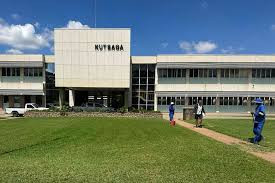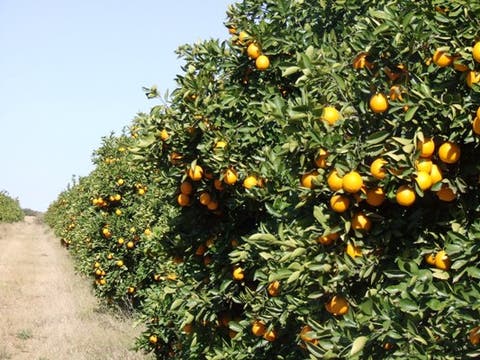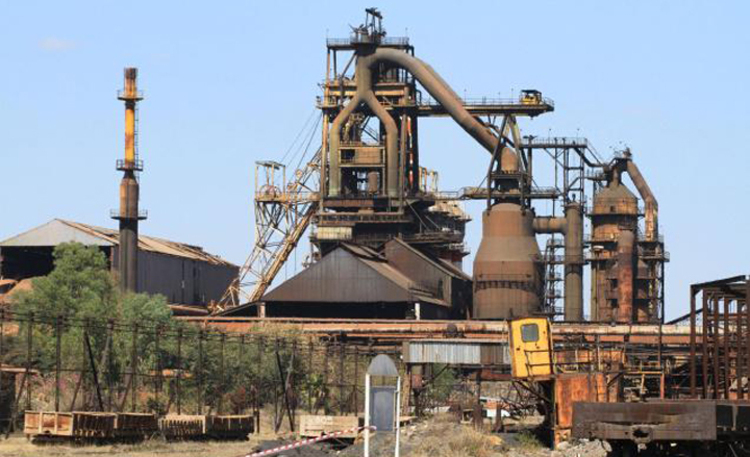Mangwe, Bulilima tobacco farmers get Timb thumbs up
FARMERS in the Mangwe and Bulilima districts involved in a pioneering commercial tobacco farming project, have been given the thumbs up by the Tobacco Industry and Marketing Board (Timb), in recognition of their work to spread tobacco production across Zimbabwe.
The initiative, which has spread to several villages in the Matabeleland Province, is now in its second season. In the 2023/24 season, 17 villagers joined the pioneer tobacco production project launched at Syringavale Farm, Marula in Mangwe District.
The project has now grown to accommodate over 170 farmers, who heeded the call to switch from traditional small grains and maize to commercial tobacco farming.
In the 2024/25 tobacco season, the project has expanded to villages deep in the Mangwe District, including areas such as Ingwizi and Tshitshi. Additionally, more farmers from the neighbouring Bulilima District have joined the project.
Tobacco Industry and Marketing Board
Tobacco is predominantly grown in Mashonaland provinces, with only a few farmers involved in the Midlands Province and a sprinkling in the Matabeleland regions, which major in cattle ranching, doing the crop.
Timb said the expansion of tobacco farming beyond the traditional strongholds of Manicaland and the Mashonaland provinces was a potential game-changer in changing the national economic balance.
“The Tobacco Industry and Marketing Board (Timb) is proud to announce a significant milestone in the decentralisation of tobacco production in Zimbabwe. For the second consecutive season, tobacco is being successfully grown in Marula, Mangwe District, Matabeleland South, an important step in expanding the crop beyond its traditional strongholds in Manicaland and the Mashonaland provinces.
“This regional expansion is more than a geographical shift, it represents Timb’s commitment to inclusive growth, sustainability and national economic balance,” said Timb in a statement.
Timb said a local tobacco sales floor that it approved and inspected had been established in Mangwe.
“Small-scale farmers are currently growing 84 hectares of Natural Cured Virginia (NCV) tobacco under a contract system with Atlas Agri, one of Zimbabwe’s leading tobacco contractors. The contractor has also established a local tobacco sales floor, which has been inspected and approved by Timb and will facilitate sales this season.”
The establishment of a local tobacco sales floor in the southern region will drastically reduce the distance farmers must travel to market their harvest, lowering costs and increasing access to markets, said Timb.
Unlike traditional Flue-cured Virginia (FCV) tobacco, the one being grown in Marula requires no firewood or coal for curing. Farmers use sunshades and drying racks, which significantly reduce production costs and environmental impact, making the crop a sustainable option.
“By removing the need for curing fuel, the tobacco in Mangwe offers a cost-effective and climate-smart alternative. The tobacco produced still shares the same chemical composition and smoking characteristics as flue-cured tobacco, offering buyers a viable, high-quality product.”
Timb is exploring solar-powered borehole systems to improve seedbed irrigation for the 2025/26 season. With proper infrastructure, training and support, Timb said, Matabeleland South Province had the potential to become a force to be reckoned with in Zimbabwe’s tobacco industry.
Under Timb’s Tobacco Value Chain Transformation Plan, which aims to grow national production to 300 million kilogrammes by 2025, tobacco farming in the southern region is key to meeting the target. As of April 16, the country had sold 81 million kilogrammes of tobacco worth US$279 million, averaging US$3.43 per kg, against a target of 280 million kilogrammes.
Women make up the majority of local farmers, who are part of the tobacco revolution in Mangwe and Bulilima districts. One such female farmer is Mrs Ellen Sibanda, a first-time tobacco farmer at Greenfield Farm, who planted half a hectare for a start.
“I started planting on December 17, 2024 and in a week, I had planted 8 300 plants, although the figure fell short of my target of over 9 000 plants. Tobacco farming is hard, but together with the one employee that I hired, we persevered and finished planting on time as advised by Mr Rodrick Musiiwa,” Mrs Sibanda told Chronicle two months ago.
Mr Musiiwa is a tobacco specialist, who has been leading the tobacco revolution in Mangwe and Bulilima since the inception of the pioneer project two years ago.
Another farmer, Mrs Sibonele Mathe, planted 14 900 tobacco plants on one hectare and is confident she will reap the rich pickings of the cash crop.
“I’m a first-time tobacco farmer and I was inspired to try the crop when I walked past a tobacco farm at Syringavale Farm in Marula, last year. I told other villagers that I would try tobacco farming but they did not take me seriously.
“There was a time when we had a long dry spell and I almost lost hope. We are happy now because we have been receiving good rains during the past few weeks. I’m hopeful that we will get a good harvest,” said Mrs Mathe.
chroncile












